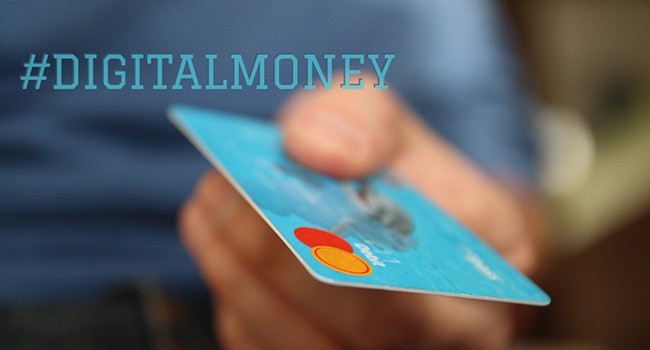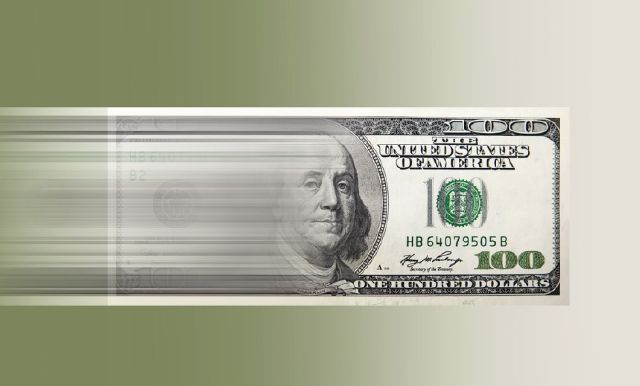What is your vision of a perfect life? Most people would look at the influential and wealthy people in the world and wish they could be in their positions. Assuming that is the life you wish to have in the future, what are you doing towards that goal, other than wishing? It might sound harsh, but wishful thinking with no plan will rarely get you to the point you want. Forget about these wealthy folks for a minute, and try to be realistic depending on your situation, i.e., job, education, and projected career progress.
Ideally, many would want to be free of debt, have enough money to travel around the world, and not have to work hard every day. The definition of financial freedom is subjective since we all have varying interests, and we won’t dwell on that. The blueprint of achieving financial freedom is what is common, regardless of the end goal. A big part of it is understanding where your money comes from and how it is spent and controlling this flow.
Budgeting is the process of creating a plan to spend your money. Most of us live from paycheck to paycheck and do not understand how our seemingly large salaries run out before the next payday. Living this way won’t get you any closer to your life goals, a reason why you should be in control of your money.
In this piece, we will break down the importance of a budget in your life and highlight some useful information that will help you live by yours successfully.
Read on;
Importance of a budget
A budget is vital for anyone, even though people associate it with restrictions. Others feel that they do not have enough money to budget. These are myths as budgeting can help you save money rather than overspending because you lack a plan to guide where every dollar goes.
Some of the benefits of one include;
1. It keeps you from overspending
It’s always funny how we try to justify overspending money, with the statement that we work hard for it and no one should restrict how we spend it. Well, spending money without thinking carefully is not right regardless of how you try to justify it. This is the main reason why people seek debt and plunge deep into it until their lives hang on credit cards and short-term loans. Overspending limits your financial muscle in the future since more of your income will be used to pay the debt. You cannot notice your life slowly creeping deep into debt, and it is extremely hard to get out of it without discipline and diminishing financial power. A budget will tell you when you need to stop spending.
2. It helps you to achieve your goals
It isn’t easy to achieve short, mid, and long-term goals without a plan. A budget is a low-level measure you can take to achieve all these goals. With one, you will stop hoping to buy the car you want and set a blueprint that will get you the money to buy it within a couple of months. With a proper budget, you can calculate how much money you need to achieve some of these goals and move things around to ensure you achieve them in a timely fashion. A good way of budgeting is setting goals with respect to the budget in a way that they speak to each other. This will keep you focused and instill the discipline required to live within a budget, as your eyes will always on the prize.
3. Good for saving money
Saving money is not easy since people tend to get itchy fingers once they have some significant amount in their accounts. This is mostly seen with savings that have no structure or goal to accompany them. A budget will help you save money in multiple ways. First, it will identify some of the categories you waste money on and free up some amounts you can save. In addition, it will be aligned to your goals which are the rewards that motivate you to save religiously. Once you work out how much money you need to survive between paydays, you can automate your savings by getting a standing order that automatically redirects the amount you have settled on into a savings account.
4. It helps you live within your means
Many people spend money they don’t have, thanks to credit cards. They add the available credit card balance as part of their income. This is a dangerous way of living since you plan for the money you do not have and pay a lot in interests. A budget will help you live within your means and adjust your lifestyle to fit the amount of money you earn. Once you draw out your expenses, you will know what is spent on food, entertainment, and other things without digging into credit cards. It will also keep you safe from peer pressure from your spend happy friends, and by the time they realize they are in debt, you will be steps closer to your goals.
5. You spend and enjoy your money better
It is easy to assume that a budget will restrict your life and how you spend money. On the contrary, it will stop you from worrying and allow you to enjoy your money better. With a budget, you allocate a certain amount to each category, and this lets you enjoy it since you are still taking care of all the other categories. If you set an amount for leisure, you won’t engage in the activities here worried about anything since you are sure that this money is fully dedicated to leisure. Budgeting opens up opportunities to have fun and helps you worry less about expenses and your future.
6. Gives you control
The ultimate benefit of having a budget is that it gives you control of your finances. A proper one will give you a clear picture of how much money gets into your accounts and what every penny is spent on. This control helps you make informed decisions such as lifestyle changes since you can back this up with the numbers. You can always tweak the amounts allocated to each category based on changing priorities, which is the beauty of having financial control.
How to Create and Use a Budget
To enjoy all the benefits listed above, you will need to create and implement a budget. This is the first major hurdle you will encounter in this process, as doing it is not easy. Think of it as a plan that assumes everything will go the way you anticipate, something that never happens. In this section, we will highlight the important steps required to create and use one.
1. Identify your goals
Your goals dictate how your budget will look like. Identify them, and group them into short, medium, and long term depending on the period you intend to achieve them. Be realistic based on your current situation, and do not set goals based on the hope that you will land a windfall somewhere or get a job promotion. If these things happen, you will review the goals and budget, but do not do it from the start as they will give you a false sense of comfort. It also helps to assign some priority to the goals to help you know which ones to spend the most money on.
2. Break down your expenses and income
Unless you receive money from multiple sources, your income should be straightforward. Identifying expenses is the hard part since some miscellaneous and irregular ones can easily fall through the cracks. Expenses typically fall into three categories, namely;
- Fixed expenses are those that are constant month on month. They include rent, mortgage, homeowner’s insurance, and debt payments. If you are saving towards a goal, include it here.
- Variable expenses change from month to month and include utilities, groceries, and periodic maintenance fees.
- Discretionary expenses are those that are specific to you, such as entertainment, clothing, and travel.
Try to list all the expenses you incur on a typical day and label them into the categories above.
3. Select a process and tools
Budgeting is done differently, and you have to find a method that works for you. It is an everyday thing, and a proper method will make it effortless and keep you at it. One common method of tracking a budget is old school paper and pen method. This is as simple as it gets, and you write all your income and expenses on a notepad. You might have to carry a small notebook to record all your expenses or find a way of updating them regularly. While this old-school method is hands-on and inexpensive, it is prone to mistakes and time-intensive. It is, however, ideal for novices in budgeting and people who are not well versed in technology.
A spreadsheet is the foundation of the other method, and you can use Excel or Google Docs. These sheets do the arithmetic for you and allow you to organize your information easily. Spreadsheets are easily customizable, and you can find free templates online that have the work done for you. They can be easily shared and accessed on multiple devices as well. The downside is that the formulas can be hard to learn, and they are time-intensive. Spreadsheets are perfect for beginners who are familiar with computers.
A cash-only budget is a policy that aims to hard-restrict you to the money you have. It is implemented using an envelope and cash where hard money is allocated to each category and enveloped. It involves no arithmetic, easy to track, and automatically restricts your expenditure. The downside is that it might not work for all budget categories, and people are moving away from using cash. This method is ideal for the technologically averse and those that need hard restrictions to keep them within budget.
A finance software/app is the modern way to enforce a budget. You will find multiple options today, and some can even synchronize to your financial accounts. Updates are automated, and all transactions are categorized. This is the easiest to track and accessible from anywhere.
You are not required to pick a budgeting method exclusively as you can find a combination that works for you.
4. Instill changes to reflect the budget
Your attitude and ability to adjust will determine the changes you implement here. There is no global solution, and various budgeting theories have their good and bad. You can opt for a zero-based budgeting method to allocate every single cent earned and remain with nothing. Alternatively, you could choose a 50/20/30 budgeting approach where half of the income goes to essentials, 20 per cent on debt and savings, and 30 per cent on entertainment. Regardless of the theory you pick, it is likely that you will have to reduce your spending to try and achieve your goals.
Fixed expenses are hard to reduce since they involve major lifestyle changes like moving to a smaller home or getting a cheaper car. Variable expenses can be reduced by seeing how to get more with less such as eating at home, taking advantage of coupons, and buying home supplies in bulk.
Discretionary expenses are where you can easily adjust since most of them are luxuries you can do without. Do not get me wrong, and scrap off the entire allocation for this category as you need to have fun and buy good clothes from time to time.
Do not view these changes as restrictions, rather view them as a short-term sacrifice required to achieve a long-term gain. By skipping the regular out-of-home meals, you can clear your debts faster and get a step closer to buying your dream home.
5. Don’t have a fixed mindset
A budget is a plan, and they do not always come to pass. However, do not take this as an excuse to abandon a budget at the slightest anomaly. Your willpower and motivation to step towards your goals will be greatly tested. Managing one is harder if you lose a job or earn an irregular income. However, a budget is a living document that you should feel free to adjust if things become tough. If you lose a job, focus on the essentials and reduce most luxuries as they can easily drive you into financial disaster. If you land a windfall, resist the temptation to increase your expenditure significantly and channel more towards savings and debt payments.
Popular Budgeting Principles
If you find it hard to create a budget, you can leverage some of the existing principles that provide the basis of any budget. They include;
1. The Balanced Money Budget
This method is also referred to as the 50-20-30 method. It has been mentioned here, and the idea is to spend 50% of your income on essentials, 20% on savings, and the remaining 30% on wants. It is a simple principle, and you can break it down by defining what these categories consist of. Usually, the needs are made up of mortgages, utilities, clothing, gas, transport, and healthcare. They are the things you cannot live without. Savings consist of an emergency fund, retirement goals, and debt repayment. The wants are everything else. The main point of this principle is to have three main categories rather than having too many to worry about. However, it can lead to overspending within categories which compromises some individual things that fall under it. The best way to handle this is to overbudget for each so that you have some money to buffer you from overspending.
2. Zero-based budget
This method is defined by the tagline “give every dollar a job.” It is where you assign your income to different categories from the moment it lands into your accounts and have no cent left. Note that this does not mean that you spend the entire amount. The money might still be in your accounts, but the plan is clear on where every dollar should go. It is perfect for anyone who wants to micromanage their money as you won’t spend any money unless it is planned for. However, it can be time-consuming since you will have to go into the details of how you spend money, leave alone the planning and tracking process. Besides, you never know when an unexpected need might arise, and this plan lacks the flexibility to allow you to handle such needs.
3. The 60% solution
This method is similar to the balanced money budget, with the main differences being the percentages allocated to different categories. It proposes that you allocate 60% of your income to committed expenses, including all your bills. It differs from the essential category of the balanced money budget since it includes bills that are not essential such as digital subscription services. The remaining 40% of the budget is divided into retirement, long-term savings, short-term savings, and fun money. In this method, you only get to see 70% of your money, i.e. the 60% and 10% fun money, as the rest is automatically deposited into the respective accounts. This method works for those willing to impose a pay cut on their lives and forget about tracking their expenses.
4. The No Budget method
This is a funny method since it negates everything we’ve said here. However, it is still a method that works for some people. It is as simple as it sounds and the only thing you have to pay attention to is your bank account balance. It can overlap with the 60% budget if you automate your savings and leave enough in your checking account to take care of the bills and everything else. This method is perfect for those who do not like saving as it requires very little work. It is ideal for those who earn a lot to cater to their needs and have some surplus without making any lifestyle changes of living frugally.
5. The cash-only budget
This budgeting method is becoming harder with each passing day due to the rise of electronic payments. Here, there is no room for plastic and withdraw the entire amount and budget for it. You then put the cash in envelopes and label the categories. Luckily, some budgeting apps can allow you to implement this budget electronically, but it loses the whole point if you chose this way. This method is perfect if you struggle with overspending. It can also help to box you into the categories and amounts allocated to it if you have to do it. The downside is that cash can easily be lost or misplaced, and you might encounter some emergencies and have no money to pay since you carried what you need and left everything else at home.
Tips to succeed with a budget
Budgeting is not easy, and many people give up just after a few months of trying it. The path to achieving your dreams will never be easy as you need to make hard decisions to get there. Creating and living with a budget is just one of those changes you will have to adapt.
Here, we have prepared some tips that will help you live with your budget;
It’s all a mindset thing
If you look at the grand scheme of things, budgeting starts and ends with the mindset. This will make or break the process, and it does not matter what budgeting style you use or how much money you make. It is within your powers to follow or ignore the budget, a reason why you should get this right. Ideally, start by understanding what it means to you and what you hope to gain from it. These are some things that will determine whether you view the budget from a positive or negative mindset. For instance, if you view your budget as something that denies you the freedom to enjoy your life, the chances are high that you won’t succeed with it. On the contrary, if you view it as something that gives you control over your finances, then you will be encouraged to follow it to the latter.
If you have struggled with budgeting, get the mindset obstacle out of the way first before you get into the details of creating one. Find out how it makes you feel and what you dislike about it. What fears do I have about budgeting, and might you have overlooked the benefits of budgeting subconsciously? Some of these questions will clarify your relationship with a budget and identify any possible improvement areas that will help you live with one.
Be ready to change your money habits
We all have money habits that can get in the way of living within budgets. Some of these are subconscious, and we do not even know about them. To succeed with a budget, you will need to point them out as they can be sabotaging your efforts without even realizing it. They take different forms, and mostly, the smaller ones are those that wreck our plans. They include making small frequent impulse purchases, shopping for your feelings, paying bills late and recurring charges on your financial accounts.
Once you’ve identified these spending habits, work on adopting new ones. A good way is setting up an automated bill payment, where you won’t have to worry about late payments and fees that come with it. Create a fund that will take care of expenses that you do not take care of that often. In a nutshell, changing money habits can take a huge toll on your life, but you should cope comfortably if you have the right mindset.
Fine-tune your budget regularly
Your budget reflects your life, and do not be fixated on the first draft you made. Life changes, and you can get a family, get a job promotion or develop new interests. Understand that the budget should work for you and not the other way round. As a result, be open to evolve your budget and tweak it to reflect your current life situation. As some expenses go away, such as student loans and mortgages, feel free to change the budget to reflect these changes, even if it means allocating some freed amounts to entertainment. If you have a family budget, schedule a regular budget check-in meeting with your spouse to see how it is going and improve it.
Frequently Asked Questions
Why do we need to budget the income of the family?
Budgeting is critical in a family setup since the dependents are many and, in most cases, only the parents provide for the rest. A financial tragedy will have worse consequences for a family compared to someone who lives alone. A family budget allows you to spend money wisely on the things you must have and set aside some for unforeseen expenses. It would be best if you also planned for some expenses such as education for the kids, which span over an extended period.
Do I need a budget if I have a high income?
Budgeting is necessary for high-income earners as it can make a good situation better. Even the top professional athletes need the services of a personal trainer to keep them at the highest levels and even improve their performance to ward off competition. With a high-income budget, you can move to achieve your goals very fast and find more meaningful ways to invest and spend your money.
How fast should I pay off my debts?
There is no fixed way to approach your debts, but always be analytical about them. The first thing to look at is the interest rates of the debts you hold. Credit cards usually have high-interest rates and pay these first to avoid paying too much as interests. In some cases, it makes sense to pay off these debts before you think about investing in things such as stocks, bonds or funds. Some debts do not allow for overpayment, and be sure on this as channeling more to these will negate any savings you get on interest costs. Mortgages are often the cheapest loans you have, and they are often tax-deductible, meaning you can save money year on year, making it attractive to overpay.
Bottomline
A budget is a necessary evil required to achieve your financial goals, for lack of better terms. We all have different relationships with money, depending on our backgrounds, how much we have earned over the years and our definitions of “good money.” Regardless, we should strive to control our finances and know where every cent goes if we are to achieve our financial goals. Creating and living a budget is hard, but we should comfortably plan and actualize it in our lives with the right mindset and will. The positive effects come to life after a few months when you start seeing your savings account burgeoning, your debt reducing and having less stress over your finances.










